*Information for this blog post was found on http://www.anzacportal.dva.gov.au*
Overview of the Kokoda Campaign: The Japanese landed on the Northern Coast of Papua New Guinea, near Gona, on the 21st of July 1942. In the two months that followed, they managed to push the Australians and their local Papuan allies towards Port Moresby (which was the Japanese objective). The Japanese were able to come within 40 kilometres of Port Moresby but in September, the tides turned and the Australians began to push the Japanese back the way they came. Even though costly, the Australians were able to force the Japanese into abandoning their plan to capture Port Moresby.
Even though both sides were not used to jungle warfare, the Japanese were the first to find their feet. Groups of 4-6 men would crawl towards their target to try and stun them with grenades. To kill a few enemies could take a couple of hours and it was not uncommon not to see any live enemies during an engagement.
Patrolling the jungle was a vital job because the jungle could easily conceal large numbers of men and therefore, it was important to know where the enemy was and what they were doing. At one point in the campaign, both armies were patrolling an area of up to 100 kilometres and could often be deep behind enemy lines.
The Australians suffered more from illness from the Japanese. A study of 1943 stated that the Japanese were the ‘most inoculated army in the world.’ However in November, the Japanese casualties started to rise and this can be traced back to problems with Japanese supply. Both armies had to battle through dysentry and malaria.
Timeline of Events:
Sunday 7th December 1941 – The War in the Pacific Begins: The United States base in Manila and the British army in Malaya were attacked.
Tuesday 9th December 1941 – Japan invaded Malaya and Thailand: This occurs just after midnight on the 8th of December.
Wednesday 10th December 1941 – Australia Declares War on Japan: Australia declares war on Japan.
Saturday 3rd January 1942 – Allies Arrive in Port Moresby: As a part of a plan to protect Australia, a battalion is sent to Timor, Ambon and Rabaul and a brigade arrived at Port Moresby.
Friday 23rd January 1942 – The Japanese Invade Rabaul: The Japanese invade Australian-held Rabaul and the division that was holding it, including six army nurses, were captured.
Tuesday 3rd February 1942 – Port Moresby is bombed: Port Moresby has its first bombing raid as Ambon falls to the Japanese.
Saturday 14th February 1942 – Military Rule is Declared in Papua: Military rule is formaly declared and Civil Government is suspended.
Sunday 15th February 1942 – Singapore Surrenders: On this day, General Percival calls for a ceasefire and makes the desicion to surrender. More than 100,000 troops (14,972 Australians) became Prisoners of War.
Thursday 19th February 1942 – Japanese First Bomb Darwin: Darwin suffers it first adn most devistating air raid and the Australian mainland was attacked for the first time.
Monday 23rd February 1942 – Fall of Timor: The Australian positions are overrun in the west of East Timor and Duch West Timor is surrendered to the invading Japanese force.
Sunday 8th March 1942 – Japanese land on New Guinea: The Imperial Japanese Armyland at Lae and Salamaua in New Guinea. Their aim is to establish airbases to attack Port Moresby.
Thursday 12th March 1942 – Fall of Java: Java falls to the Japanese with Dutch, British, Australian and American troops taken Prisoner.
Thursday 18th April 1942 – MacArthur is Appointed Commander in Chief: General Douglas MacArthur is appointed Commander in Chief of the South west Pacific Area.
Monday 4th May 1942 – The Battle of the Coral Sea: Japanese transportships were on their way to invade Port Moresby from Rabaul. An American adn Australian fleet attacked them and forced them to abandon. The Japanese and Americans lost 1 carrier each.
Friday 8th May 1942 – Philippine Falls: Philippine falls to the Japanese forces. This now means that the three Japanese infantry regiment that captured the Philippines are now available to assist in operations against New Guinea and the Soloman Islands.
Sunday 31st May 1942 – Japanese Submarines Enter Sydney Harbour: In the late afternoon, three Japanese submarines, sitting 13 kilometres off Sydney Harbour, lauhcned midget submarines. One of these midget submarines fired a torpedo that sunk the HMAS Kuttabul.
Wednesday 3rd June 1942 – The Battle of Midway: The Battel of Midway occurs in the Central Pacific. The Japanese Navy is defeated with the loss of four aircraft carriers.
Tuesday 14th June 1942 – Japanese Decide to Attack Port Moresby Overland: Japanese command decides to attack Port Moresby overland, from north to south. They would follow the Kokoda Trail to Port Moresby.
Tuesday 7th July 1942 – Australian Kokoda Operations Begin: Warned that the Japanese may land on the north coast of PNG, Papuan and Australian troops begin operations along the Kokoda track.
Tuesday 21st July 1942 – Japanese Forces Land at Gona: The Japanese land at Gona and begin the advance across the Owen Stanley Range and over the Kokoda Track.
Wednesday 29th July 1942 – Japanese Attack Kokoda: The Japanese attack on Kokoda is successful. The Australian commander is killed and the Australians retreat to Deniki.
Tuesday 4th August 1942 – Cameron Takes Command: Lieutenant-Colonel Allan Cameron arrived to take command of the “Marouba Force”.
Friday 7th August 1942 – US Marines Land at Guadalcanal: US Marines land in the Solomon Islands to divert the japanese focus from Papua New Guinea.
Saturday 8th August 1942 – Second Kokoda: Under Cameron, The Australians counter attack Kokoda from Deniki. They are unable to hold it and retreat to Deniki again.
Thursday 13th August 1942 – Major General Allen Arrives in Port Moresby: The 7th Australian Division is to reinforce th Australians along the Kokoda trail. Its commander flies into Port Moresby.
Sunday 16th August 1942 – Lrt Col Honner arrives: Lt Col Honner arrives at Isurava and takes command of the Marouba force from Cameron.
Friday 29th August 1942 – The Only VC of the Kokoda Campaign is won: When the outnumbered Australians wee defending Isurava, Private Bruse Kingsbury was firing his Bren gun and was able to break a path through the enemy and recapture the position. He is killed by a sniper, and awarded the Victoria Cross posthumosly.
Sunday 31st August 1942 – Australian Forces Withdraw from Isurava: The Australians who were followed by the Japanese, pass though Templeton’s Crossing and fall into the mountains.
Thursday 4th September 1942 – Japanese Defeated at Milne Bay: The Japanese suffer their first land defeat by Australian troops at Milne Bay.
Sunday 7th September 1942 – Japanese Attack at Efogi: The Australians stationed at Mission Ridge and Brigade Hill are defeated and driven back by the Japanese.
Wednesday 10th September 1942 – Potts is Recalled: Because of the defeats at Isurava and Brigade Hill, Brigadier Arnold Potts is recalled by Thomas Blamey.
Tuesday 16th September 1942 – Japanese Gain Control of Ioribaiwa Ridge: After a couple of days of heavy fighting, the Australian defences are shattered and the Japanese occupy Ioribaiwa Ridge. The Australians retreat to Imita Ridge.
Tuesday 23rd September 1942 – Blamey arrives at Port Moresby: Gemeral Blamey arrives at Port Moresby to take personal command of the New Guinea Force.
Sunday 28th September 1942 – Japanese Withdrawal Begins: Fearing that the Australians may land to their rear, the Japanese reteat. When Eather attacks Ioribaiwa Ridge, he finds the Japanese have gone.
Monday 29th September 1942 – Australians Push Back Japanese: The Australians begin to push the Japanese along the Kokoda track.
Tuesday 30th September 1942 – Australians Re-enter Nauro: The Australian 2/25th battalion enters Nauro and find it unoccupied.
Monday 12th October 1942 – Japanese Defeated at Eora-Templeton’s: The Japanese attempt to hold the Owen Stanley Range’s postition but they are driven out of the mountains by the Australians
Wednesday 28th October 1942 – Australian Divisional Commander Replaced: Major General Arthur Allen is removed and George Vasey is appointed to replace him.
Monday 2nd November 1942- Kokoda is Recaptured: The Australians re-enter Kokoda on 2nd November, 1942
Tuesday 3rd November 1942 – The Australian Flag is Hoisted over Kokoda: Eather’s 25th Brigade enters the abandoned Kokoda. The Japanese rearguard had left two days earlier. Just after 11am, General Vasey hoists an Australian flag over Kokoda.
Wednesday 4th November 1942 – Japanese are defeated at Oivi-Gonari: The Japanese are defeated and are driven back to their base on the coast between Gona and Buna.
Monday 9th November 1942 – Blamey delivers ‘Rabbits’ Speech: In an address to the troops, General Blamey is accused of implying that the men ran like rabbits during the Japanese advance on Kokoda.
Thursday 12th November 1942 – Battle of Guadalcanal: The Japanese withdraw from Guadalcanal after their largest attempt to reinforce the island fails.
Monday 16th November 1942 – Battle of Buna-Gone Begins: Teh Japanese who have been pushed back to their main base in Papua, dig in around Gona, Sanananda and Buna. The Americans and Australians atatck them their
Wednesday 9th December 1942 – Gona Falls to the Australians: Gona falls to the Australians on the 9th December 1942.
Saturday 2nd January 1943 – Buna Falls: Buna falls to the Americans and Australians.
Friday 22nd January 1943 – Final Foothold is Annihilated: The final Japanese beach foothold is destroyed. The reminants of the Japanese force escape north towards Lae.
Saturday 23rd January 1943 – Papuan Campaign ends: Ofiicial end to the Papuan Campaign
Tuesday 2nd March 1943 – Battle of the Bismark Sea: The Japanese sent a convoy of ships to reinforce the reminants of their troops in New Guinea. In three days of air attacks, the RAAF and USAAF sank all of the transporters and four of the destoryers. At least 2890 Japanese were killed.



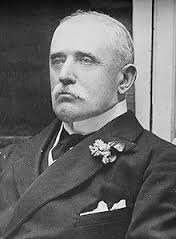
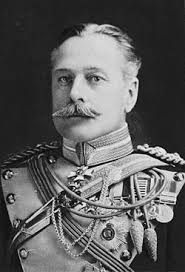





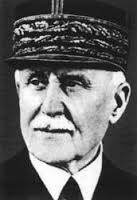


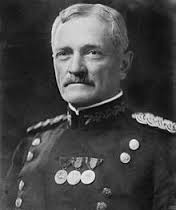
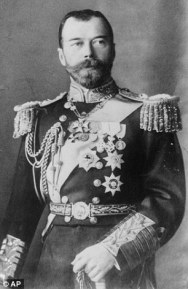

Recent Comments